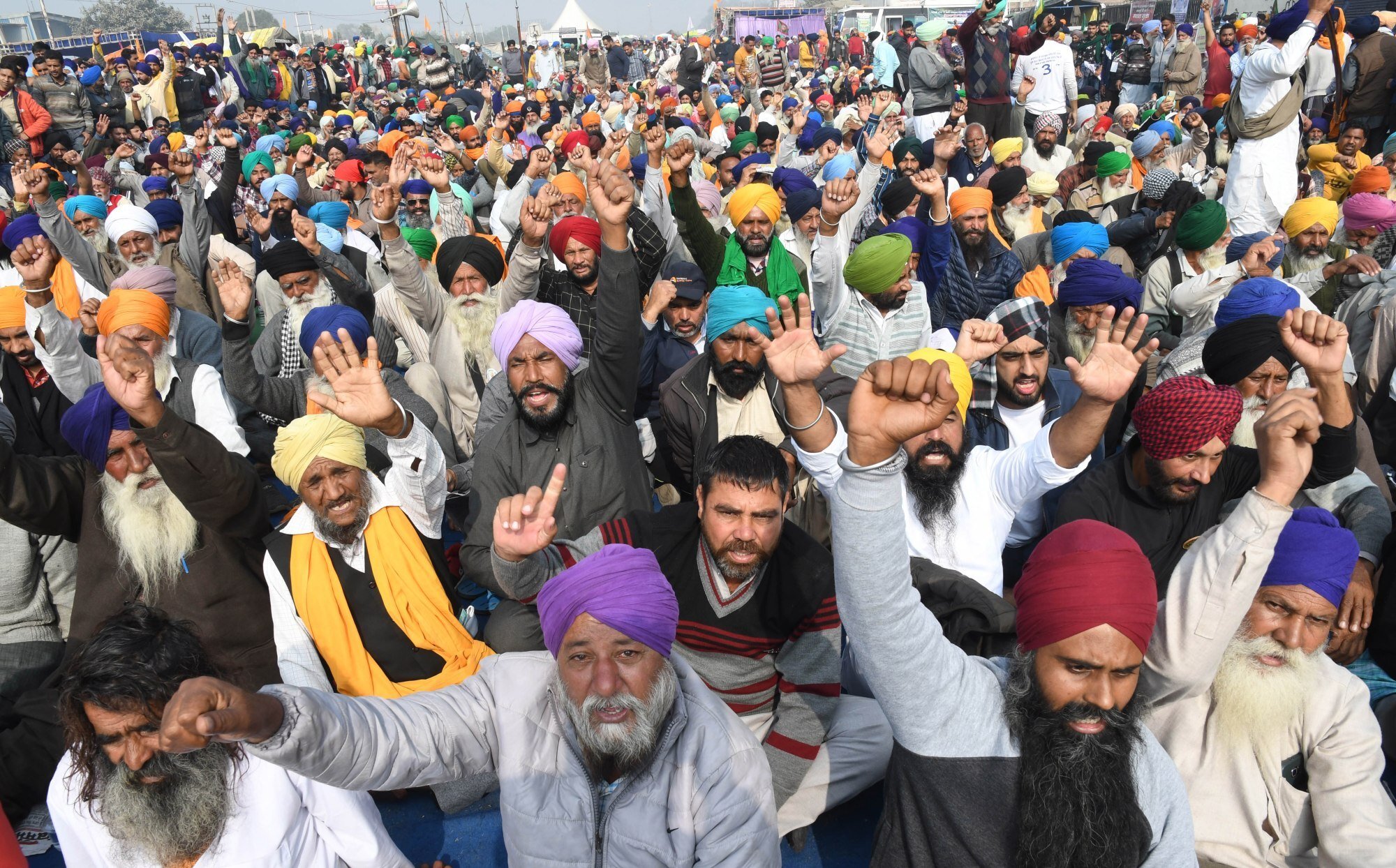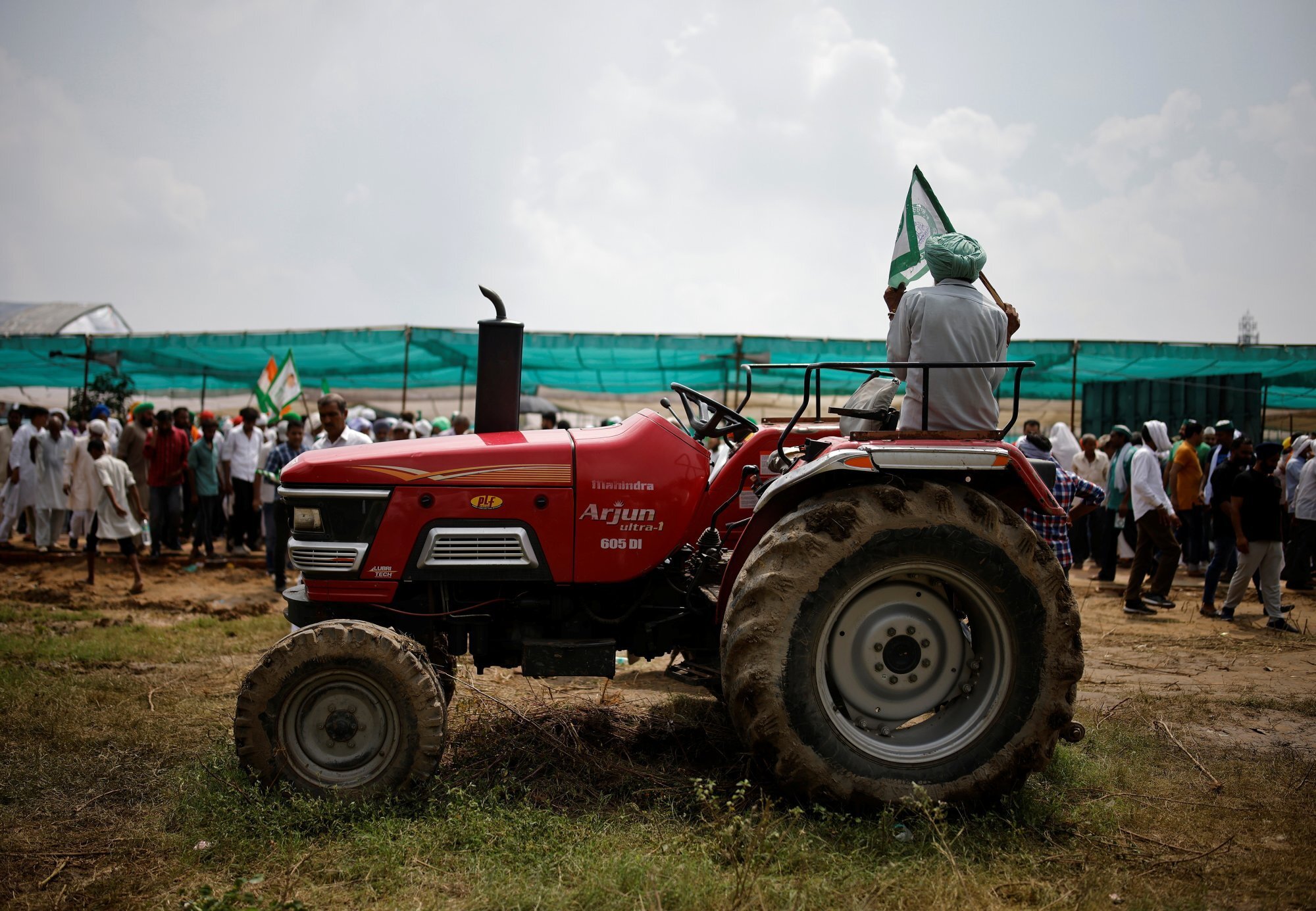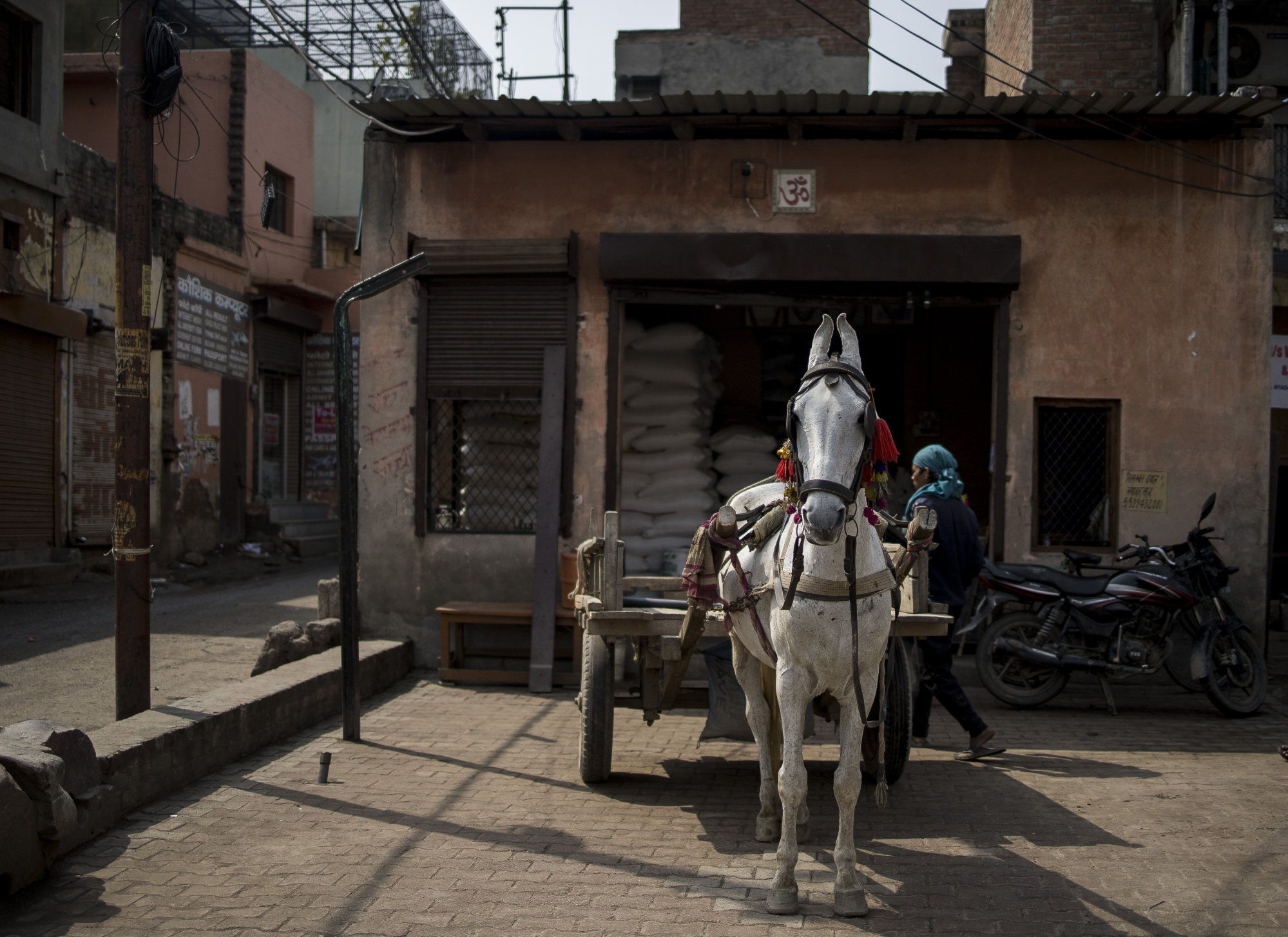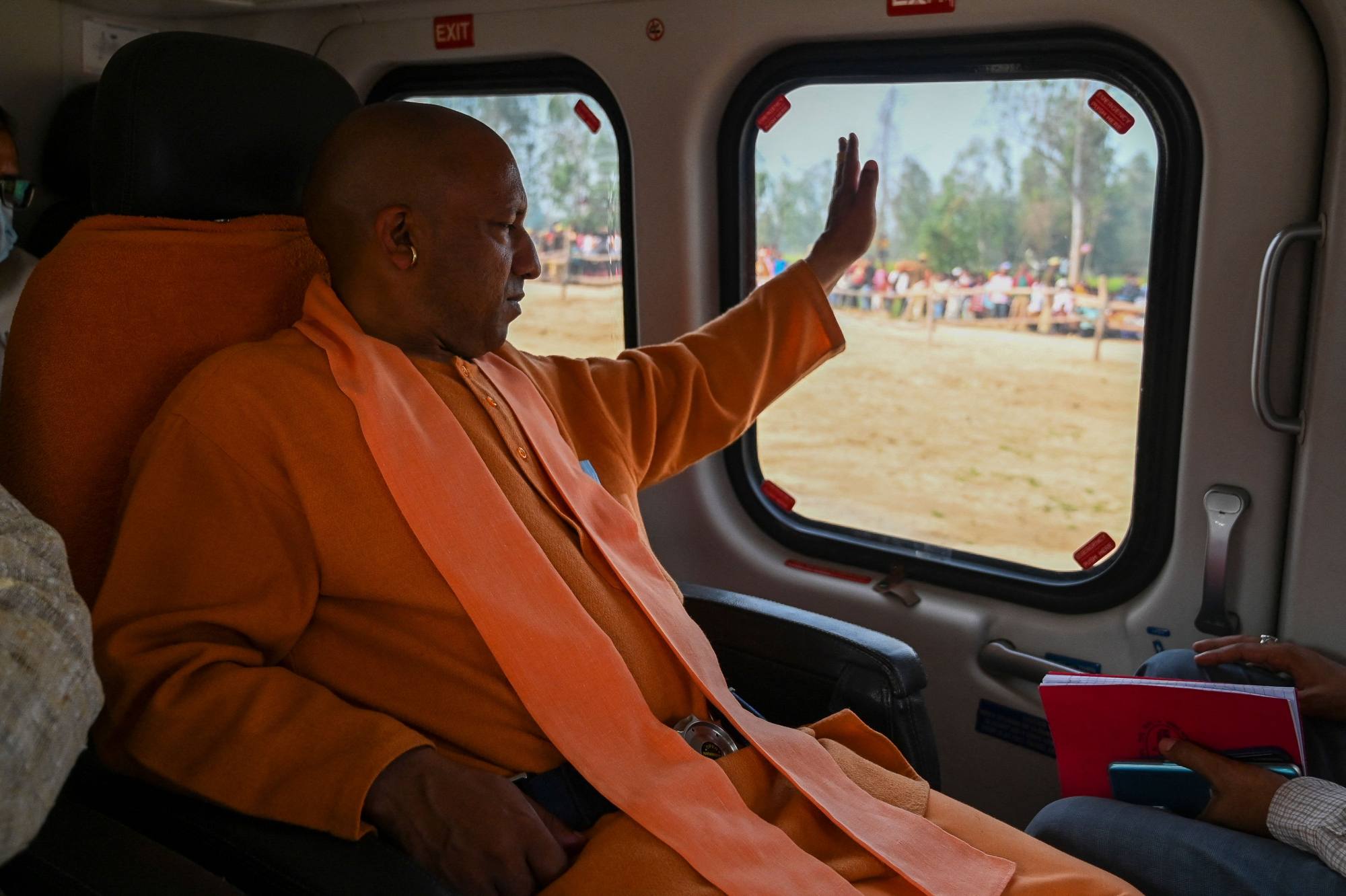
By
Jagdeep Singh, a 31-year-old farmer from India’s most populous state of Uttar Pradesh applied to local authorities for a revolver licence four months ago.
His village of Lakhimpur Kheri, home to 4 million people, is filled with lush green sugar cane and paddy fields.
It was in one such sugar cane field Singh’s father died last year. The son of a federal minister was allegedly part of a convoy comprising a jeep and two SUVs that rammed into the elder Singh and three other farmers.
They were protesting the three contentious agricultural laws introduced by Prime Minister Narendra Modi’s government that farmers felt would hurt their incomes, and were waiting to wave black flags at the minister on that fateful day.

The minister had earlier threatened to “discipline” them and had plans to pass through this route. But he changed his course at the last minute and while the farmers dispersed, the minister’s son’s convoy allegedly hit them from behind. When Singh heard what happened, he went to look for his father, only to find his body four hours later.
To Singh, Modi and his Bharatiya Janata Party (BJP) are to blame.
“The BJP government has completely destroyed our life … we live in fear every day,” Singh told This Week In Asia.
With more than 200 million people, and 80 per cent of the majority Hindu faith, Uttar Pradesh is India’s political nerve centre, and a bellwether for national politics. How the BJP does there will give an indication of its fortunes in the next national polls in 2024. Ballots will be counted on March 10 and for Singh, who says he has little faith in the state government or police, “the situation will get worse if Adityanath is re-elected”.
According to National Human Rights Commission, in 2018-19, victimisation and harassment of minorities in Uttar Pradesh rose by 137 per cent to 19 from eight cases in 2017-18. The actual number could be higher than the reported cases.
Data from the Uttar Pradesh government shows that between 2017 and 2020, more than 6,476 encounters took place in cases related to cow smuggling, violent robbery, crimes involving theft, and altercation resulting in the death of 124 people. Of them, 37 per cent were Muslims.
According to a FactChecker.in database that tracks hate crime, 69 per cent of the reported cases of hate crime in Uttar Pradesh were of bovine-related violence, where Muslims were targeted for trading cattle and eating beef. The state government raided abattoirs and butcher shops, businesses that are directly linked with the livelihoods of Muslims. State police also arrested Muslim men for having romantic affairs with Hindu women by calling it “love jihad” – a conspiracy to overpower Hindu culture.
A report titled, “Christians Under Attack in India”, by non-governmental Organisations, Association for Protection of Civil Rights, the United Christian Forum and United Against Hate, published last year found that there were 305 cases of attacks against Christians and their places of worship in India between January and September, last year. Of these, 66 incidents were reported from Uttar Pradesh.
Similarly, crime against women and Dalits have surged in Uttar Pradesh. National Commission for Women (NCW) data shows that more than half of 31,000 complaints of crimes committed against women received last year were from Uttar Pradesh. In 2020, after the rape and murder of a young Dalit woman by four upper caste men, police ordered her cremation to go ahead against the family’s wishes.
According to Angana Chatterji, a scholar at the University of California, Berkeley, “the blatantly hostile demeanour and violent acts of Hindu nationalists and their pervasive presence across the state is repressive for non-Hindus, especially Muslims”.
BJP in political trouble over farmers’ protests?
Senior journalist Radhika Ramaseshan, who has been travelling across the state to feel the pulse of voters, said that the communal card the BJP played successfully in two previous national elections in 2014 and 2019, and the state elections in 2017 – is not working this time.
Adding that the BJP is in considerable “trouble” this election, Ramaseshan said Adityanath’s strong PR machinery has created a narrative that law and order has improved under him, and the crimes have been fewer because the Muslim community, who were behind the crimes, have been fixed.
“This is how the Hindutva narrative is creeping into the discourse,” Ramaseshan said.
“But a certain fatigue has stepped in with Hindu-Muslim polarisation.”
Ramaseshan claims that even the landowning upper caste Jat community and small and marginal farmers, who were supporters of the BJP, seem to have drifted away. Their sentiment has changed over the long delayed payment for their sugar cane produce from the state government, unavailability of urea, in addition to the poor handling of the farmers’ protests.

An official from the Rashtriya Swayamsevak Sangh (RSS), the ideological parent of the BJP, said the party would face the “consequences” of the “cruel” handling of the nationwide farmers’ protests by Modi, in Uttar Pradesh elections.
Noting the RSS’s influence on the BJP, Ramaseshan said the process of thinking about the next BJP prime ministerial candidate would gain traction after the Uttar Pradesh polls “whether BJP wins or not”.
“If BJP wins, Adityanath is the candidate for the prime ministerial post, in 2029, if not 2024.”
The RSS official, who declined to be named as he was not authorised to speak to the media, said Modi wanted to “remain the poster boy for Hindus”.
“Unfortunately, the present leadership in RSS has no control over Modi. They suffer from an inferiority complex in front of his ‘grand’ image,” he said.
Worry for non-Hindus
Non-Hindus This Week in Asia spoke with said they would probably vote for the Samajwadi party and Rashtriya Lok Dal alliance – which wants to fight for social justice and secularism – the only strong opposition to the BJP this time.
Besides polarising the elections on communal lines, the BJP has been campaigning on the state government’s provision for free ration and “improved” law and order.

Ramaseshan, however, pointed out people are complaining about the substandard quality of food grains given for free besides the rising prices of mustard oil and cooking gas.
But what seems clear is that Adityanath is set for a higher path if he wins the state election for the BJP.
Senior RSS official Ramesh Shiledar said the organisation believes Adityanath’s status as a monk and a devout Hindu makes him “non-corrupt.” Shiledar also said that Adityanath will serve the country, and is seen as a strong man who can handle Islamist threats.
But this is especially worrying for non-Hindus. Among them is paediatrician Kafeel Khan who recently released a book on what is known as the Gorakhpur tragedy, where 63 children and 18 adults died at a state-run hospital in Uttar Pradesh in 2017 after it ran out of liquid oxygen.
Khan was the lead doctor at the hospital on that fateful day. While he was praised for his efforts at trying to round up as many oxygen cylinders as possible, he was suspended a day later on charges of dereliction of duty. It turned out the hospital had not cleared the outstanding dues worth 6.8 million Indian rupees (US$ 90,200) to oxygen suppliers.
Khan was arrested a month later then released on bail in April 2018, and in September 2019, he was acquitted of all charges of medical negligence. But after he gave a speech criticising India’s controversial citizenship law, he was arrested for breaching the National Security Act (NSA), though Khan claims this was also motivated by his efforts to “investigate the truth” behind the hospital deaths.
The NSA charges were dropped in 2020 but Khan was also terminated from the hospital last year.
He maintains the string of events that happened was aimed at creating “fear psychosis” in the minds of other Muslims that the same could befall them if they went up against the government.

“Whenever Yogi tortured me, he tried to create a pseudo euphoria among his followers, who were promised education, health and employment but wasn’t delivered these. He distracted them from the real issues by punishing Muslims,” Khan alleges.
Chatterji, the Berkeley researcher whose work focuses on political violence and prejudice in India, said: “Adityanath has weaponised drastically unequal economic, faith-based and political relations between Hindus and non-Hindus and caste and gender oppression, to lay siege to the foundations of democratic life”.
“[His] illiberal vision for India is more unrestrained than Modi’s and his influence over the militant wing of Hindu nationalists is dangerous.”
This article first appeared on scmp.com

